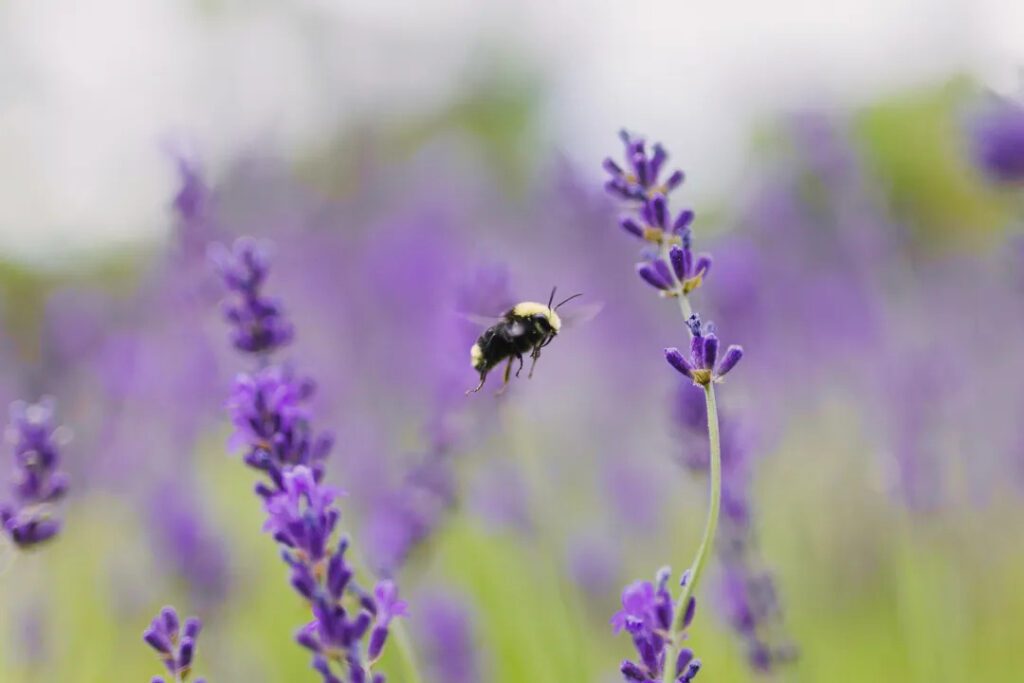During springtime, everyone is familiar with the saying, “April showers bring May flowers.” But it always seems people forget that more flowers mean more pollen, and more pollen means allergies run amok.
In the U.S., it is reported that more than 100 million people are living with asthma or allergies. The reports go on to show that nearly 26 million people have asthma, about 20 million have food allergies, and about 80 million have rhinitis due to nasal allergies.
In 1984, the Asthma and Allergy Foundation of America (AAFA) declared that May is National Asthma and Allergy Awareness Month to remind people how many people live with them. Despite there being no known cure for either, there are ways that we can help ease triggers and symptoms. So, join us this month as we explore these two conditions and learn how to make changes to alleviate them.

According to the National Heart, Lung, and Blood Institute, one in 13 people in the U.S. are living with asthma. It’s described as a chronic condition affecting the airways, making it harder for air to flow when breathing. Symptoms include coughing, wheezing, chest tightness, and shortness of breath. Those living with it usually follow strict treatment plans and are on medications.
When it comes to allergies, the most common ones involve pollen, peanuts, tree nuts, shellfish, and animal dander.
While there are some preventative measures for managing them, some people just have to try their hardest to avoid their allergens. If they, unfortunately, encounter it, the symptoms can range from sneezing, hives, coughing, or, in extreme cases, anaphylaxis, which could be fatal.

Now that we have some background, here are ways that you can support those living with the conditions, making the world a safer place for them:
Follow the U.S. Environmental Protection Agency’s (EPA) list of ways you can make your home asthma friendly
Making changes throughout your household is one of the most crucial steps to caring for those with asthma. Harsh cleaners, dust, animal dander, mold, and humidity can all trigger an attack. The EPA’s list includes suggestions like changing your air filter, getting hypoallergenic pets, not smoking, regular dusting and vacuuming, and avoiding aerosols.
Learn the signs of anaphylaxis
During an allergic reaction, anaphylaxis can occur within seconds or minutes, sending one’s body into shock. Symptoms include itching, swelling, tightening of the throat, tingling in the mouth, and shortness of breath. If the affected person has an EpiPen®, read the instructions on how to administer it, then immediately call 9-1-1. Knowing how to respond calmingly and efficiently in an emergency can save a life.

Challenge yourself to learn allergen-friendly recipes
May 14 marks the beginning of Food Allergy Awareness Week. Kids with Food Allergies has put together food option lists and ingredient substitutions for anyone wanting to learn how to make their food safer and more inclusive. While there is no way to ensure that you are avoiding every allergen, being aware and conscious of the major ones and learning how to adapt to them is a way to go the extra mile and show consideration.
Take part in planting allergen-friendly plants
The Ogren Plant Allergy Scale System (OPALS) grades plants in terms of pollen production. Make your community a bit tolerable by using the scale to grow allergy-friendly plants around your neighborhood.

Reach out to your school district to advocate for awareness and preparedness
Children with asthma and allergies are the most vulnerable and at risk, especially when away from their families. Contact your schools to ensure they are ready to deal with emergencies and have systems to mitigate any dangers.
Despite there being no cure for asthma or allergies, it does not mean we are completely helpless against them. Following these tips brings us all one step closer to living a safer life where those affected don’t have to be overly cautious all the time and can enjoy life more freely.





